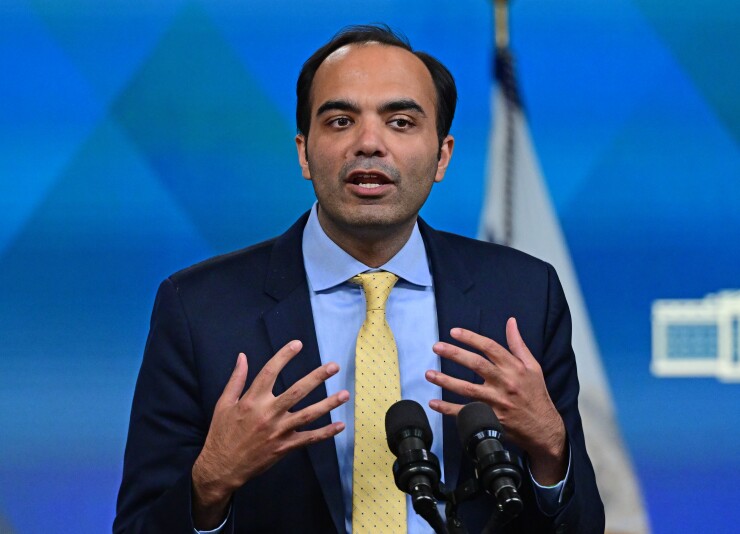
Debt collectors are violating the law if they rely only on information from a medical provider to collect a debt and they
The CFPB on Tuesday provided guidance on ways in which debt collectors must substantiate medical debts, such as getting access to a patient's payment records or confirming a hospital is complying with financial assistance requirements.
The CFPB identified several illegal practices such double billing, charges that exceed state or federal caps, and the industry practice of "upcoding" — a corporate euphemism for overcharging — in which a patient is billed for medical services that are more costly or complex than the services actually performed.
The CFPB reminded debt collectors that the Fair Debt Collection Practices Act imposes "strict liability," and collectors are responsible for communicating clearly with consumers about the legal status of the debt and the amount owed. Collectors can be sued by consumers for attempting to collect on medical bills that are inaccurate, unsubstantiated or invalid under the law.
"Medical billing is often riddled with errors, including inflated or duplicative charges, fees for services the patient never received, or charges already paid," CFPB Director Rohit Chopra
Medical debt has become a campaign issue for Vice President Kamala Harris, who joined Chopra in June to announce from the White House a
The CFPB proposed something similar last year. At the time, ACA International, a trade group that represents third-party collection agencies and creditors, said the proposal could cause disruptions in the market and harm consumers and small businesses. Banks and the debt collection industry oppose taking medical debt off credit reports because they claim creditors would not have a full understanding of a consumer's debt load.
While the advisory opinion doesn't create new obligations for debt collectors, the CFPB provided examples of conduct that violates the FDCPA. The agency said employers or insurers, rather than patients, may be responsible for qualifying medical expenses for state workers' compensation. The bureau also said the federal Nursing Home Reform Act prohibits nursing care facilities that participate in Medicaid or Medicare from requiring a third-party guarantee of payments as a condition of admission or continued stay in a facility.
The FDCPA allows for private rights of action that make it easier for individuals to sue debt collectors. With the advisory opinion from the CFPB, consumers can better defend themselves against lawsuits. Advisory opinions are non-binding interpretations of the law.
"An enforceable payment obligation may not exist until proven in court," the CFPB said in its
The CFPB noted that
Such firms are prohibited from using "unfair or unconscionable means to collect or attempt to collect any debt," including collecting any interest, fees, charges, or expenses incidental to the principal obligation unless expressly authorized, the bureau said.
The bureau explicitly called out the practice of upcoding. A study this year found that from 2010 to 2019, the total amount of upcoding expenses for Medicare Part A was $656 million for inpatient hospital coverage; $2.4 billion for Medicare Part B outpatient medical coverage, and $10 billion to $15 billion for Medicare Part C private Medicare Advantage plans. Upcoding is relatively widespread and has been estimated to account for 5% to 10% of total healthcare expenses in the United States, the bureau said.
Healthcare providers are incentivized to initially set high list prices as starting offers in negotiations with insurers, the CFPB said, in describing the practice of upcoding. As a result, uninsured and out-of-network patients are often charged much higher prices than those that are ultimately agreed to with insurers for patients in their networks. Even within a network, prices may vary by facility and the rates often exceed the cost of providing care. The CFPB also said that research has also shown that healthcare markups are higher at hospitals with more Black and Hispanic patients and at investor-owned, for-profit hospitals.
The CFPB also issued a blog on






